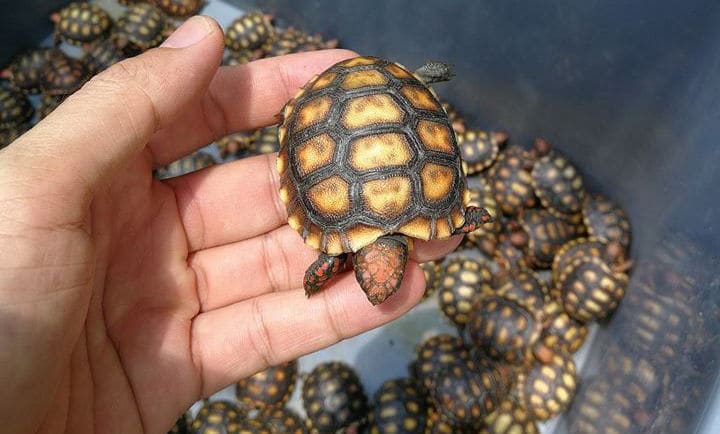With tourism suffering, sea turtles are thriving in peace in Phuket

One silver lining of the Covid-19 pandemic that devastated tourism and the economy in Thailand and the world is that nature benefitted greatly from a bit of a breather from the throngs of people trampling around the earth. Reports of flora and fauna revitalising have been seen around the world. In Phuket, the absence of tourists has given sea turtles the privacy and safety to spawn in greater numbers.
More turtle nests have been spotted in Phuket than were ever found in the days before the pandemic, according to the Phuket Marine Biological Centre. A variety of different sea turtle species have been spotted nesting and laying hundreds of eggs around the island throughout 2021. During heavy tourist times, nesting locations are limited, but with the peace and quiet, baby hatchlings can crawl out of their eggs and waddle down the beach to the sea.
Sea turtles lay their eggs which then hatch and the babies crawl into the sea, only to return back to the beach when they are old enough to lay their own eggs and the generational cycle will continue. It’s not easy though, with natural causes taking out a lot of turtles even without the human interference and pollution in the water and the environment. It is estimated only 1 in 1,000 eggs hatch and survive to full maturity.
But it is hoped that the peaceful conditions that allowed many breeds of sea turtles to thrive this year will continue post-Covid for the next generation of turtles. Species like the olive ridley sea turtle, which hadn’t been seen in 20 years, are being spotted on the beaches of Phuket now. Hawksbill, leatherback, loggerhead, and green turtles have been seen nesting around the island.
Now, authorities are seizing the opportunity for sea turtle conservation, with nests being fenced off and monitored with CCTV whenever they are found, as experts from the Phuket Marine Biological Centre try to make up for the damage done by humans over the years. The primary cause of death in sea turtles is plastic waste, nets, and fishing lines, and 56% of all sea turtles that are seen in the Centre have plastic waste either in their system or tangled around their body.
In 1982 the government banned collecting sea turtle eggs, which were commonly eaten in Thailand until recently, and having or selling some turtle eggs can land someone in jail for up to 15 years. The Centre believes that educating the public about conservation and protecting turtles and eggs is key in seeing the population grow in years to come, Covid-19 or not.
SOURCE: National News Bureau of Thailand
Latest Thailand News
Follow The Thaiger on Google News:


























